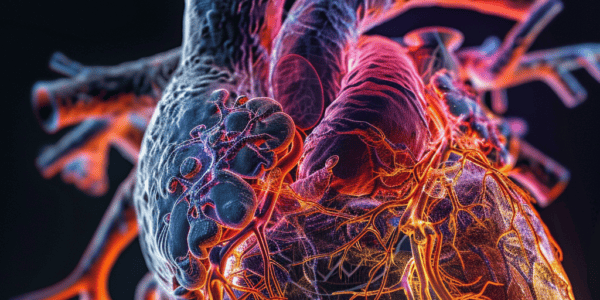MIT scientists develop rapid gene-editing screen to identify cancer mutations
MIT scientists have developed a rapid gene-editing screen using prime editing to identify the effects of cancer mutations. This new technique aims to revolutionize the identification of mutations that could be targeted with new cancer therapies, potentially leading to personalized cancer treatments and more effective therapies in the future.
Study Finds Multiple Child Asthma Triggers in Polluted Air
New research from Washington State University in Spokane reveals that polluted air contains a toxic mix of chemicals that can trigger asthma attacks in children. The study, led by researcher Solmaz Amiri, found that the location of a child’s residence significantly impacts their exposure to these toxins. Three pollutants were identified as particularly influential in triggering asthma symptoms in children: 1,1,1 trichloroethane, 2-nitropropane, and 2,4,6 trichlorophenol. Despite some of these air toxics being discontinued in the U.S., they may still be present in stored materials or the environment. The study highlights the ongoing presence of these pollutants and their potential impact on children’s health, underscoring the need for continued monitoring and action to reduce children’s exposure to harmful air pollutants.
Controversy and Concern in Florida
Florida is facing criticism and concern due to a measles outbreak and controversial decisions at the University of Florida. The state’s approach to handling the outbreak and the university’s recent decisions have sparked controversy and drawn sharp rebuke from medical experts and public figures.
Global Cholera Outbreak Causes Concern
A multi-country outbreak of cholera has caused concern worldwide, with over 787,000 reported cases and 5,500 deaths in 31 countries. The shortage of Oral Cholera Vaccines (OCV) has been a major challenge, with demand doubling the available supply. The World Health Organization (WHO) has classified the global resurgence of cholera as a grade 3 emergency, with the risk assessed as very high. For the latest data on the outbreak, the WHO Global Cholera and AWD Dashboard is available for reference.
Scientists Conduct First-Ever Gene Therapy Tests in Whole Human Liver
Groundbreaking study by Children’s Medical Research Institute (CMRI) conducts first-ever gene therapy tests in whole human liver, aiming to develop more effective treatments for inherited diseases. Research addresses challenges in bringing gene therapies from lab to clinic, utilizing innovative normothermic liver perfusion system to test AAV-based therapeutics before clinical studies. Senior author expresses excitement about potential for directly assessing gene therapeutics in human liver.
Groundbreaking Atlas of Developing Human Heart Cells Reveals 75 Cell Types
Scientists have published the most comprehensive cell ‘atlas’ of the developing human heart, unveiling 75 types of heart cells, including never-before-seen cell types. The detailed map provides insights into the organization of cells to form different internal structures of the heart in the womb, shedding light on how various cells interact during heart development. This groundbreaking work opens new avenues for understanding heart development and lays a foundation for potential advancements in cardiac research and regenerative medicine.
Deadly Bacterial Infections Spread in Tap Water, CDC Warns – Are Your Faucets Safe?
CDC warns of deadly bacterial infections spreading in tap water, including legionella and ‘forever chemicals.’ While generally safe to drink, experts advise against using tap water in certain ways to avoid potential illness and infection, such as in CPAP machines, humidifiers, and nasal irrigation. Babies are particularly vulnerable to the potential risks of tap water, including elevated nitrate levels.
New Drug Target Identified to Prevent Kidney Failure
New research from Weill Cornell Medicine has identified a potential drug target, retinoic acid receptors (RARa), in the proximal tubules of the kidney to prevent kidney failure. The study suggests that drugs activating RARa could counteract fibrosis caused by conditions like diabetes, autoimmune diseases, or viral infections, offering hope for new treatment strategies to combat kidney failure.
Excessive Salt Consumption Linked to Heart and Kidney Health Risks, Study Finds
Excessive salt consumption can increase the risk of hypertension, cardiovascular, and chronic kidney diseases, according to a study by the George Institute for Global Health India. The research also highlighted the impact of inadequate potassium intake, associated with an increased risk of developing hypertension, cardiovascular disease, and chronic kidney disease. The study emphasizes the suboptimal intake of nutrients necessary for good cardiovascular and kidney health in the population of North India, including excessive salt consumption, inadequate potassium intake, and protein consumption below the recommended dietary allowance.
Cincinnati Health Department Warns of Potential Measles Exposure at Disney On Ice Performance
The Cincinnati Health Department warns of potential measles exposure at the Heritage Bank Center during a Disney On Ice performance on March 8. Attendees are advised to monitor their health for symptoms and seek medical advice if necessary. Vaccinated individuals have a low risk, and testing arrangements will be provided by the health department.










